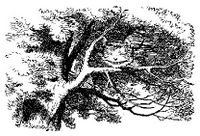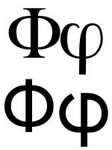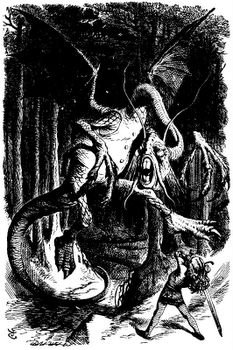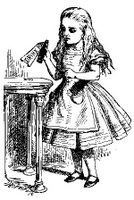Cobol-E, Laing, Tau, stuff
See just this Post & Comments / 0 Comments so far / Post a Comment / HomeThe musical background here is the Hollies singing Long Cool Woman in a Black Dress:
Saturday night I was downtown
Working for the FBI
Sitting in a nest of bad men
Whiskey bottles piling high
Bootlegging boozer on the west side
Full of people who are doing wrong
Just about to call up the DA man
When I heard this woman singing a song
A pair of 45's made me open my eyes
My temperature started to rise
She was a long cool woman in a black dress
Just a 5-9 beautiful tall
With just one look I was a bad mess
'Cause that long cool woman had it all
I saw her heading to the table
Well a tall walking big black cat
When Charlie said I hope that you're able, boy
Well I'm telling you she knows where it's at
Well then suddenly we heard the sirens
And everybody started to run
Jumping under doors and tables
Well I heard somebody shooting a gun
Well the DA was pumping my left hand
And she was holding my right
Well I told her, "Don't get scared
'Cause you're gonna be spared"
Well I'm gonna be forgiven
If I wanna spend my living
With a long cool woman in a black dress
Just a 5-9 beautiful tall
With just one look I was a bad mess
'Cause that long cool woman had it all
Had it all,
Had it all,
Had it all...
When I was just beginning in the systems business we used a language called COBOL - Common Business Oriented Language I think it meant, but even in those days there were flavours. Our particular flavour was Cobol-F, which was of course very much advanced over Cobol-E. This was in 1970 but even then there were some old timers who could not make the switch. My first big project was the development of year-end accounting for Sun Life of Canada. I was given two programmers one of whom was a woman who had been coding Cobol-E, apparently for too long. This strikes me as odd now that I think of it because really, in 1970, even Cobol-E had not been around for long - there must have been other factors involved. In any case, I was told that she was a no-hoper but that I should see if I could get anything useful out of her. She was not that old as I remember, a bit overweight and frumpy. There was a time before computers when clerks were clerks - she must have been one of them. Everyone else had given up on her. She sat on the next floor down, comfortably out of sight. She sat all day, mostly by herself, writing words on small pieces of paper and slipping them under her desk-mat when anyone came along. I was told this too but didn't believe it until I saw for myself. I came to her cubicle one day when she was not there and had a look - just words, five or six to a scrap, little rectangular scraps they were maybe two or three inches to a side, torn from a notepad. I wish I had taken the time to see what the words were, but I didn't. Anyway, I described the programs I wanted and she coded them up - in Cobol-E of course, there was nothing I could say that would change her habits. It was a joke really because the differences were negligible - saying Comp-3 instead of the full Computational-3 and so on. In the end I wrote a little translator to bring her code up to spec.
And that was it. I was not at Sun Life for long, maybe a year. She may have still been there when I left. I can't remember her name. I never got to know her. But lately I have found her coming into my mind again and again.
 I had read R.D. Laing's The Politics of Experience years before - in the 60s. It begins:
I had read R.D. Laing's The Politics of Experience years before - in the 60s. It begins:"Even facts become fictions without adequate ways of seeing 'the facts'. We do not need theories so much as the experience that is the source of the theory. We are not satisfied with faith, in the sense of an implausible hypothesis irrationally held: we demand to experience the 'evidence'. We can see other people's behaviour, but not their experience. This has led some people to insist that psychology has nothing to do with the other person's experience, but only with his behaviour.
 The other person's behaviour is an experience of mine. My behaviour is an experience of the other. The task of social phenomenology is to relate my experience of the other's behaviour to the other's experience of my behaviour. Its study is the relation between experience and experience: its true field is inter-experience. I see you, and you see me. I experience you, and you experience me. I see your behaviour. You see my behaviour. But I do not and never have and never will see your experience of me. Just as you cannot 'see' my experience of you. My experience of you is not 'inside' me. It is simply you, as I experience you. And I do not experience you as inside me. Similarly, I take it that you do not experience me as inside you.
The other person's behaviour is an experience of mine. My behaviour is an experience of the other. The task of social phenomenology is to relate my experience of the other's behaviour to the other's experience of my behaviour. Its study is the relation between experience and experience: its true field is inter-experience. I see you, and you see me. I experience you, and you experience me. I see your behaviour. You see my behaviour. But I do not and never have and never will see your experience of me. Just as you cannot 'see' my experience of you. My experience of you is not 'inside' me. It is simply you, as I experience you. And I do not experience you as inside me. Similarly, I take it that you do not experience me as inside you. 'My experience of you' is just another form of words for 'you-as-l-experience-you', and 'your experience of me' equals 'me-as-you-experience-me'. Your experience of me is not inside you and my experience of you is not inside me, but your experience of me is invisible to me and my experience of you is invisible to you. I cannot experience your experience. You cannot experience my experience. We are both invisible men. All men are invisible to one another. Experience used to be called The Soul. Experience as invisibility of man to man is at the same time more evident than anything. Only experience is evident. Experience is the only evidence. Psychology is the logos of experience. Psychology is the structure of the evidence, and hence psychology is the science of sciences."
"I cannot experience your experience.", he says. True. And he links this with 'faith' and 'the facts'.
Also in the 60s I had been given the idea of the 'objective correlative' as a means of understanding poetry. I trust the connection with the bit I quoted from Laing is obvious. One thinker goes along and proves categorically that faith is a fiction, and another comes along and turns fiction into faith. Like trying to nail a blob of mercury. It has gone on this way, swinging back and forth throughout my life in a subjective sense, and through all the ages of history too if I guess right.
 This morning I came across a scientific article telling me of a connection between MS, Multiple Sclerosis, and verbal skills ... just a sec ... yes: Verbal fluency deficits in multiple sclerosis., you can see an abstract at Galenicom.com. This made me laugh, because one of the very best programmers I know, the one who, on his first time out after a few weeks in some quick-and-dirty store-front programming school, coded a hidden-line removal program - this was in the late 70s and such things were notable. Anyway, this guy had MS. Whatever else programmers may be they are skilled linguists. QED.
This morning I came across a scientific article telling me of a connection between MS, Multiple Sclerosis, and verbal skills ... just a sec ... yes: Verbal fluency deficits in multiple sclerosis., you can see an abstract at Galenicom.com. This made me laugh, because one of the very best programmers I know, the one who, on his first time out after a few weeks in some quick-and-dirty store-front programming school, coded a hidden-line removal program - this was in the late 70s and such things were notable. Anyway, this guy had MS. Whatever else programmers may be they are skilled linguists. QED.And bumblebees can't fly.
 I have been thinking a lot about mortality lately too - you can see where this is going eh? The notion that our job as cultural citizens is to somehow make sense of it all, or, failing that, of any tiniest fragment of it - came to me I think from Northrop Frye, but who cares. The game theorists tell me it is a zero sum game - no one gets out of here alive. Said another way - there is no sense to be made. Another blob of mercury. Laing incidentally, at the end of the book says something about "If I could drive you out of your mind ... etc.". That was the Bird of Paradise part I think. Well, I did all that and here I am haunted by a woman I never knew.
I have been thinking a lot about mortality lately too - you can see where this is going eh? The notion that our job as cultural citizens is to somehow make sense of it all, or, failing that, of any tiniest fragment of it - came to me I think from Northrop Frye, but who cares. The game theorists tell me it is a zero sum game - no one gets out of here alive. Said another way - there is no sense to be made. Another blob of mercury. Laing incidentally, at the end of the book says something about "If I could drive you out of your mind ... etc.". That was the Bird of Paradise part I think. Well, I did all that and here I am haunted by a woman I never knew.When the tax man on the tax form asks for my occupation - I put 'clerk'. And, oh yeah, I do so now find myself just about where she was sitting, where I imagine she was sitting that is - not quite with the new dot-net paradigm, avoided by some of my colleagues who are, wondering where to go now, what to do.
 There is an almost-archetype here, an almost-voice, call it the Ancient Mariner figure. I could put Matthew Arnold's Dover Beach in there; Coetzee's Life and Times of Michael K; another one that I can't remember - about an artist searching for truth who winds up freezing to death in a shack high up on a mountain staring at a few brush strokes (Irving Stone was it?); David Malouf's An Imaginary Life; indeed wazizname, the canadian, Michael Ondaatje's The English Patient; Evelyn Waugh's A Handful of Dust; a-and Pynchon's Hugh Godolphin finding that he has been tricked by the iridescent monkeys. Can we maybe even draw a line from here to Humbert Humbert and his Lolita?
There is an almost-archetype here, an almost-voice, call it the Ancient Mariner figure. I could put Matthew Arnold's Dover Beach in there; Coetzee's Life and Times of Michael K; another one that I can't remember - about an artist searching for truth who winds up freezing to death in a shack high up on a mountain staring at a few brush strokes (Irving Stone was it?); David Malouf's An Imaginary Life; indeed wazizname, the canadian, Michael Ondaatje's The English Patient; Evelyn Waugh's A Handful of Dust; a-and Pynchon's Hugh Godolphin finding that he has been tricked by the iridescent monkeys. Can we maybe even draw a line from here to Humbert Humbert and his Lolita? 
 Drawing lines brings on another tangent, to Coxeter's` so excellent Introduction to Geometry, in which he examines Tau, some call it Phi - the Golden Mean or the Divine Proportion, expressed in the Fibonacci series and almost anything pentagonal, somehow also connected with the egyptian pyramids which are not particularly pentagonal, good old 1.61803... another darling of the 60s (although it could easily have been a simple confusion with Tao) and concludes that, "it is not a rule but a fascinating tendency." Coming from such a mind as this even the word 'tendency' has some weight. What about the slowly vanishing smile of the Cheshire Cat? Lewis Caroll? A mathematician; and another Humbert too, some people say. And, well, just to turn it on its head one more time, in that brief moment of acceleration after roller-coaster apogee, plunging headlong towards oblivion ... - Debra Lafave is in the news these days ...
Drawing lines brings on another tangent, to Coxeter's` so excellent Introduction to Geometry, in which he examines Tau, some call it Phi - the Golden Mean or the Divine Proportion, expressed in the Fibonacci series and almost anything pentagonal, somehow also connected with the egyptian pyramids which are not particularly pentagonal, good old 1.61803... another darling of the 60s (although it could easily have been a simple confusion with Tao) and concludes that, "it is not a rule but a fascinating tendency." Coming from such a mind as this even the word 'tendency' has some weight. What about the slowly vanishing smile of the Cheshire Cat? Lewis Caroll? A mathematician; and another Humbert too, some people say. And, well, just to turn it on its head one more time, in that brief moment of acceleration after roller-coaster apogee, plunging headlong towards oblivion ... - Debra Lafave is in the news these days ...  'Twas bryllig, and the slithy toves
'Twas bryllig, and the slithy toves Did gyre and gimble in the wabe;
All mimsy were the borogoves,
And the mome raths outgrabe.
'Beware the Jabberwock, my son!
The jaws that bite, the claws that catch!
Beware the Jubjub bird, and shun
The frumious Bandersnatch!'
He took his vorpal sword in hand:
Long time the manxome foe he sought--
So rested he by the Tumtum tree,
And stood awhile in thought.
And as in uffish thought he stood,
The Jabberwock, with eyes of flame,
Came whiffling through the tulgey wood,
And burbled as it came!
 One, two! One, two! And through and through
One, two! One, two! And through and through The vorpal blade went snicker-snack!
He left it dead, and with its head
He went galumphing back.
 'And hast thou slain the Jabberwock?
'And hast thou slain the Jabberwock? Come to my arms, my beamish boy!
O frabjous day! Callooh! Callay!'
He chortled in his joy.
 'Twas brillig, and the slithy toves
'Twas brillig, and the slithy toves Did gyre and gimble in the wabe;
All mimsy were the borogoves,
And the mome raths outgrabe.
For an interesting take on Jabberwocky see: THE ROBBER BRIDEGROOM
Tags: RD Laing, Golden Mean, Debra Lafave, Boobage.



